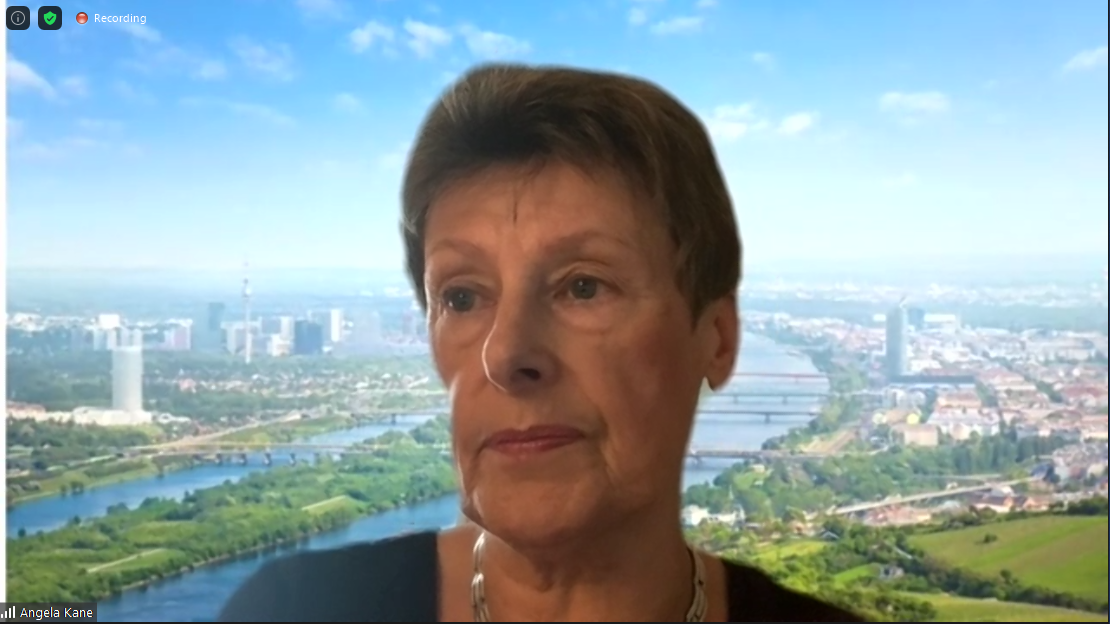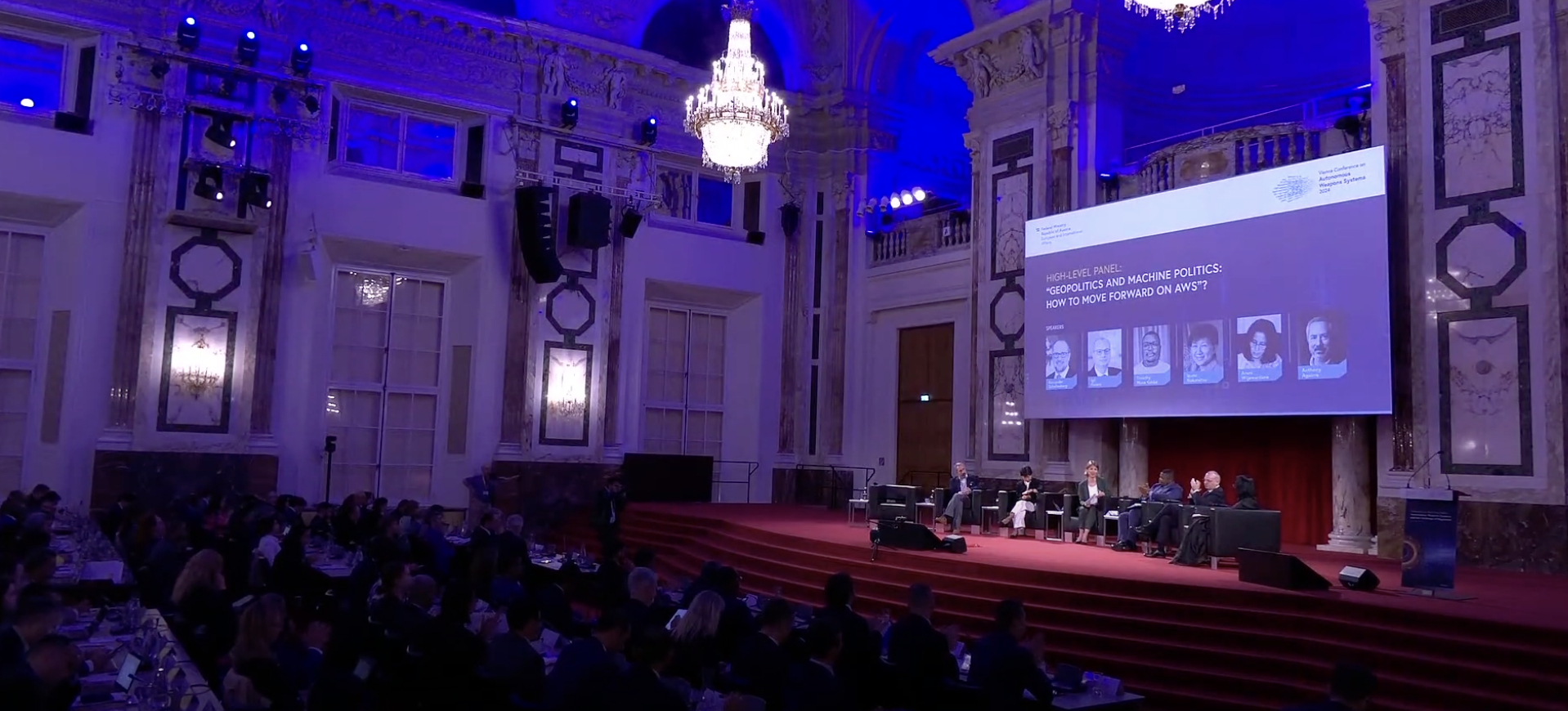
How could artificial intelligence (AI) undermine peace and security? Where are we in terms of regulation of lethal autonomous weapons systems (LAWS)? Who will be held accountable for violations of international humanitarian law (IHL) committed by machines? VCDNP Senior Fellow Angela Kane addressed these questions in a "Couch Lessons" seminar on "AI + Peace," organised by the Goethe Institut.
Ms. Kane noted that 61% of adults across 26 countries say that they oppose the use of LAWS because it crosses a moral line. Thirty countries have stated their opposition to these weapons systems, and an open letter signed by more than 4500 researchers in AI and robotics called for a ban on offensive autonomous weapons beyond meaningful human control.
Despite nearly six years of government talks in Geneva, progress has been very slow, as some governments are unwilling to agree on regulating AI in the domain of warfare.
During her remarks, Ms. Kane observed that, even if it is undisputed that any application of AI in weapons must be used in accordance with IHL, not every country that is developing AI-empowered weapons is willing to accept efforts to regulate such weapons systems. In this regard, she underlined the importance of Article 36 of Additional Protocol I of the Geneva Conventions stating that countries are obliged to determine whether a new weapon and its employment would be prohibited under Article 36.
Ms. Kane also discussed the issue of accountability when AI is used in weapons systems. Can a machine be held responsible for violations of IHL? Should the manufacturer be responsible? The owner? She referred to the eleven guiding principles on LAWS as agreed by the UN Group of Governmental Experts in Geneva, yet pointed out that these principles were only meant to guide the discussions.
In conclusion, Ms. Kane acknowledged that the deliberations in Geneva were useful, but not an adequate response to the concerns about the autonomy of these weapons and the removal of human control. Military technology continues to advance and current efforts are too slow to address the concerns that are raised regarding these weapons. Much more progress needed to be made, she emphasized.


